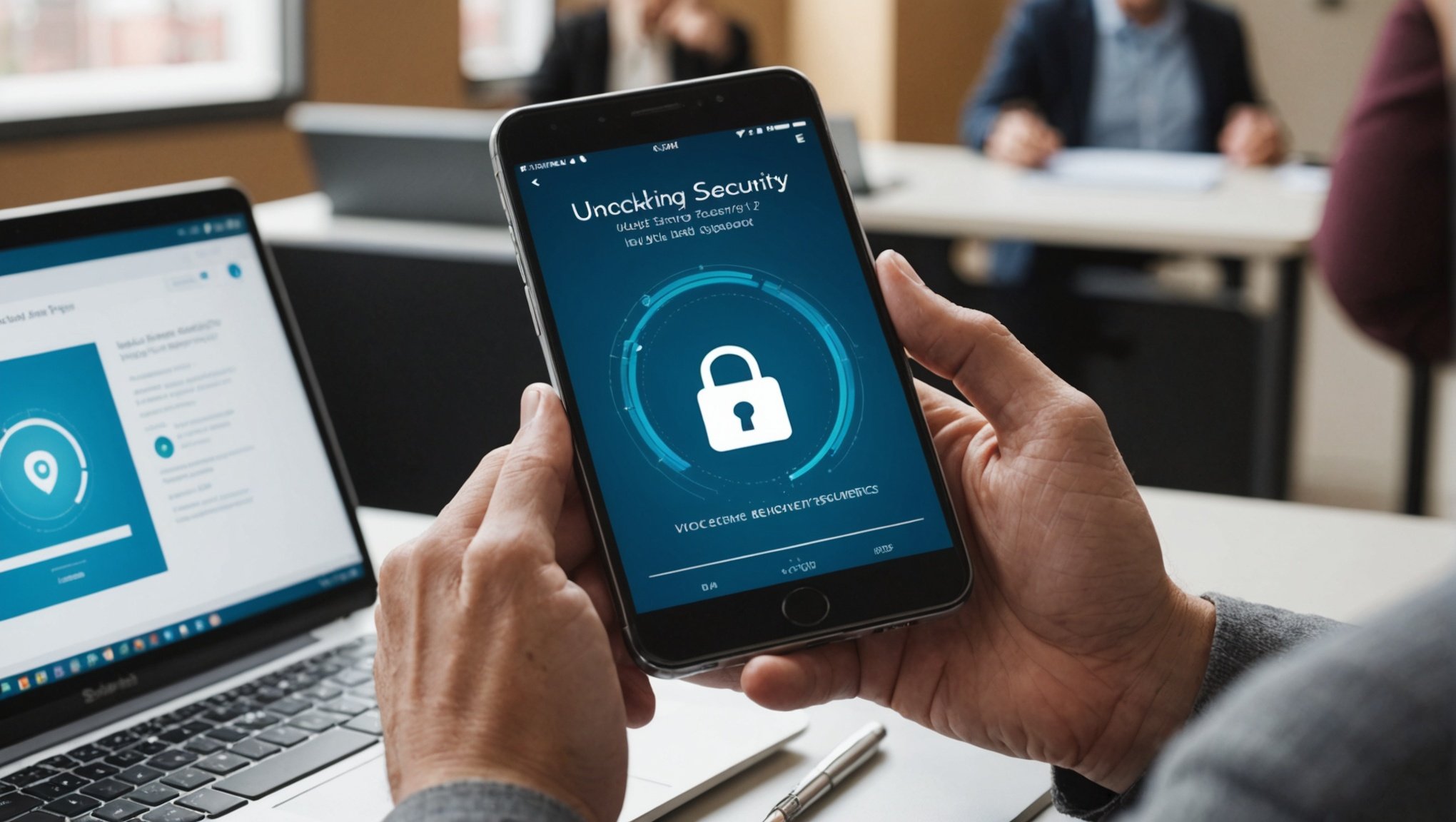Unlocking Security: The Promising Role of Voice Biometrics in Safeguarding Digital Transactions
In the ever-evolving landscape of digital transactions, security has become a paramount concern. With the rise of financial fraud and identity theft, traditional authentication methods such as passwords and PINs are no longer sufficient. This is where voice biometrics steps in, offering a revolutionary approach to enhancing security and user convenience.
The Rise of Voice Biometrics
Voice biometrics, which analyzes unique voice patterns for identity verification, is gaining significant traction globally. This technology leverages the distinctiveness of vocal traits to provide a seamless blend of convenience and security.
Additional reading : Unlocking security: the power of a smart password generator
Why Voice Biometrics?
Voice biometrics eliminates the need for complex passwords or physical credentials, making it an ideal solution for environments that require fast, accurate, and reliable identity verification. Here are some key reasons why voice biometrics is becoming a preferred choice:
- Unique Identification: Each individual’s voice is unique, much like a fingerprint. This uniqueness ensures that voice biometrics can accurately identify and authenticate users without the risk of impersonation[5].
- Convenience: Users no longer need to remember complex passwords or carry physical credentials. Voice biometrics allows for hands-free operation, which is particularly beneficial in high-pressure scenarios such as healthcare and financial services[5].
- Enhanced Security: Voice biometrics offers an additional layer of security by ensuring that only verified individuals can interact with critical infrastructure or information. This is especially crucial in preventing unauthorized access and fraud[3].
Applications in the Financial Sector
The financial sector, particularly in countries like India, is at the forefront of adopting voice biometrics.
Also to read : Revolutionizing Manufacturing: How AI Can Streamline and Enhance Supply Chain Management
India’s Financial Sector Embraces Voice Biometrics
In India, voice biometrics is gradually replacing traditional passwords in the banking, financial services, and insurance (BFSI) sector. Companies like Amazon Pay India are investing heavily in advanced voice authentication technologies to ensure secure transactions. For instance, Amazon Pay allows users to pay bills using voice authentication, simplifying the login process and enhancing security[2].
### Key Players in India's Voice Biometrics Market
- **Amazon Pay**: Integrating voice authentication for secure transactions.
- **Indian Bank**: One of the first financial institutions to integrate voice biometrics into its mobile banking platform.
- **City Union Bank**: Partnered with Kaizen Secure Voiz to add voice authentication to its mobile app.
- **Turant**: Introduced a language-agnostic, text-independent voice biometric login system.
Addressing the Challenge of Deepfakes and Fraud
One of the significant challenges in the adoption of voice biometrics is the threat of deepfakes and synthesized voice fraud. Here’s how the industry is addressing this issue:
The Threat of Deepfakes
Deepfakes, generated using AI, can be used to breach systems and compromise data. According to the State of Biometrics in 2023 survey by Regula, over 37% of organizations have faced synthesized voice fraud. This has necessitated the development of advanced anti-spoofing technology to strengthen voice biometric systems against AI-generated voice replicas[1].
Advanced Anti-Spoofing Technology
To combat deepfakes, biometric systems are incorporating advanced anti-spoofing technologies. These technologies use machine learning (ML) and data analytics to detect and mitigate deepfake attacks. For example, Vivoka’s voice biometrics solution includes offline operation and multi-language support, which helps in recognizing and rejecting spoofed voices[5].
Benefits of Biometric Authentication in Fintech
Biometric authentication, including voice biometrics, is transforming the fintech sector in several ways.
Enhanced Security
Biometric authentication methods are more secure than traditional counterparts. They cannot be stolen, guessed, or copied, making them highly secure. For instance, biometric authentication ensures that even if someone gains access to account information or passwords, they cannot compromise the account without the biometric data[3].
User Convenience
Biometric authentication increases user convenience by eliminating the need to remember complex passwords or carry physical credentials. This streamlines processes and reduces challenges associated with traditional authentication methods.
Fraud Prevention
Biometric authentication plays a crucial role in fraud prevention. It detects and prevents fraudulent activities more effectively than traditional methods. For example, multi-factor authentication using biometrics ensures that even if one security layer is breached, the account remains secure[3].
Regulatory Compliance
Regulatory bodies are increasingly mandating the use of biometric authentication for enhanced security.
Regulatory Requirements
Regulations such as the European Union’s Revised Payment Services Directive (PSD2) require Strong Customer Authentication (SCA) for electronic payments. Biometric authentication helps fintech organizations comply with these regulations, ensuring the security and integrity of financial transactions[3].
Practical Insights and Actionable Advice
For businesses considering the adoption of voice biometrics, here are some practical insights and actionable advice:
Implementing Voice Biometrics
- Assess Security Needs: Evaluate the specific security requirements of your organization and determine how voice biometrics can address these needs.
- Choose the Right Technology: Select a voice biometrics solution that supports both text-dependent and text-independent methods, and includes advanced anti-spoofing technology.
- Ensure User Convenience: Implement voice biometrics in a way that enhances user experience, such as hands-free operation and multi-language support[5].
Addressing Privacy Concerns
- Offline Operation: Opt for solutions that operate offline to safeguard sensitive data and comply with strict privacy regulations.
- Liveness Detection: Use liveness detection technology to ensure that the person signing is physically present and not using an image or recording[4].
Future Prospects of Voice Biometrics
As technology continues to evolve, voice biometrics is expected to play an increasingly vital role in digital security.
Integration with Other Biometric Methods
Voice biometrics will likely be integrated with other biometric methods such as fingerprint and facial recognition to create robust multi-factor authentication systems. This will enhance security and provide a seamless user experience[4].
Widespread Adoption
Biometric authentication, including voice biometrics, will become more widespread as regulatory bodies continue to mandate stronger security measures. This will make digital transactions safer and more efficient.
### Comparison of Biometric Authentication Methods
| **Biometric Method** | **Description** | **Advantages** | **Disadvantages** |
|
|-----------------|
|------------------|
| **Voice Biometrics** | Analyzes unique voice patterns | Convenient, hands-free, secure | Vulnerable to deepfakes |
| **Fingerprint Recognition** | Scans fingerprint patterns | Highly accurate, widely adopted | Can be compromised by high-quality prints |
| **Facial Recognition** | Analyzes facial features | Fast and convenient, non-intrusive | Can be affected by lighting and angles |
| **Behavioral Biometrics** | Analyzes user behavior | Continuous authentication, hard to spoof | Can be intrusive, requires significant data |
Voice biometrics is revolutionizing the way we approach security in digital transactions. With its unique ability to provide both convenience and enhanced security, it is set to become a cornerstone of biometric authentication. As the threat landscape evolves, the integration of advanced anti-spoofing technologies and multi-factor authentication will further solidify the position of voice biometrics in safeguarding our digital world.
In the words of Ganesh Gopalan, co-founder and CEO of Gnani.ai, “Voice biometrics and natural language processing are transforming customer experiences in India.” This transformation is not limited to India but is a global trend that promises to make our digital lives safer and more efficient.
As we move forward, it is clear that voice biometrics will play an increasingly important role in enhancing security, preventing fraud, and improving user experience. Whether you are a business looking to adopt this technology or an individual interested in the future of digital security, understanding the potential of voice biometrics is essential for navigating the secure digital landscape of tomorrow.











